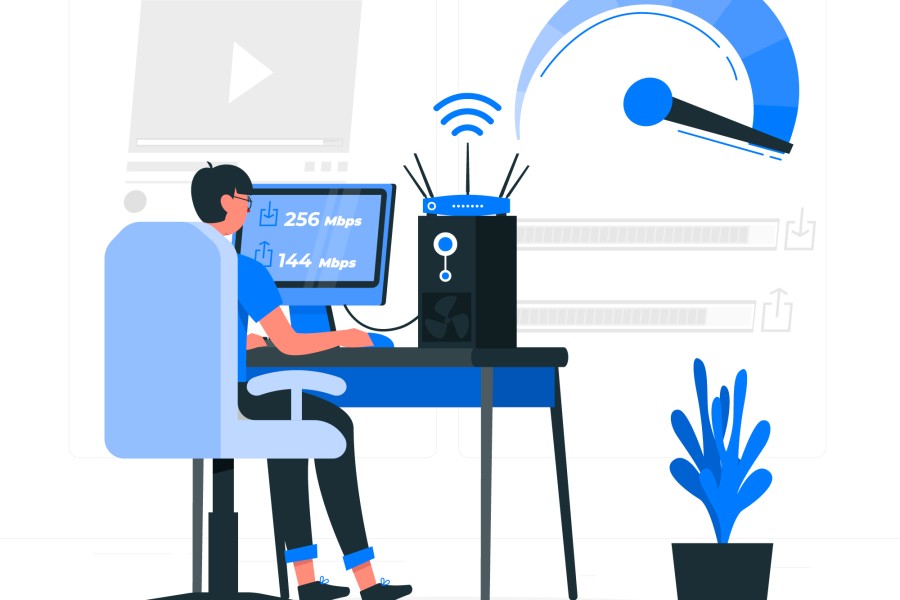The evolution of web browsers has been a game-changer for the telecommunications industry, reshaping user expectations and driving innovation. As a leading player in the Indian telecom market, Airtel has been at the forefront of adapting to these changes, leveraging technological advancements to provide enhanced services to its customers. In this article, we delve into the historical context of web browsers, their impact on the telecom industry, and how Airtel has navigated this transformative landscape.
Buy Airtel Wi-Fi with exciting benefits!
The Early Days of Web Browsers
The Birth of Mosaic
The journey of web browsers began in the early 1990s with the creation of Mosaic, the first widely used graphical web browser. Developed by Marc Andreessen and his team at the University of Illinois, Mosaic revolutionized web navigation by allowing users to view images inline with text. This groundbreaking feature set the stage for the rapid evolution of browsers in the years to come.
The Rise of Netscape Navigator
Following Mosaic, Netscape Navigator emerged in 1994, quickly capturing a significant market share. Netscape’s success triggered intense competition in the browser space, with Microsoft launching Internet Explorer in 1995. Internet Explorer eventually dominated the market in the late 1990s and early 2000s, reaching a peak usage rate of around 95%.
The Mobile Browser Revolution
The Advent of Smartphones
The introduction of smartphones, particularly the iPhone in 2007, marked a significant turning point for web browsers. Mobile browsers began to evolve rapidly, transitioning from basic WAP browsers to sophisticated applications capable of handling complex web pages. Companies like Openwave and ACCESS initially led the mobile browser market, but as smartphones became more powerful, browsers like Safari and Chrome adapted to provide a desktop-like browsing experience on mobile devices.
The Impact on User Expectations
As mobile browsers improved, user expectations for internet access and browsing experiences soared. Consumers began to demand faster, more reliable internet services that could support rich media content and seamless navigation. This shift forced telecommunications companies, including Airtel, to enhance their network infrastructure, focusing on increasing bandwidth and reducing latency to accommodate the growing data demands of mobile users.
Airtel’s Response to Browser Evolution
Investing in Network Infrastructure
Recognising the importance of providing a robust browsing experience, Airtel has invested heavily in its 4G and 5G networks. By ensuring that users can access high-speed internet connection with minimal interruptions, Airtel has positioned itself as a reliable partner in the ever-evolving telecom industry browsers landscape.
Partnerships and Innovations
To further enhance the user experience, Airtel has formed partnerships with technology companies to offer bundled services that include data packages optimized for popular browsers and applications. For instance, Airtel has collaborated with Google to provide users with access to various Google services, including Chrome, which is known for its efficiency and speed. These partnerships not only improve user experience but also position Airtel as a forward-thinking provider in a competitive market.
Bridging the Digital Divide
Airtel has also recognised the need to cater to diverse user demographics, including those in rural areas with limited access to high-speed internet. By offering affordable data plans and investing in infrastructure improvements, Airtel aims to bridge the digital divide and ensure that all users can benefit from the advancements in mobile browsing technology.
The Future of Browsing and Telecommunications
Progressive Web Apps (PWAs)
As web technologies continue to evolve, Progressive Web Apps (PWAs) are gaining popularity. PWAs offer a seamless experience that combines the best of web and mobile applications, allowing users to access rich content without the need for extensive downloads. Airtel is likely to leverage this trend by optimising its services to support PWAs, ensuring that users can enjoy fast and reliable access to applications and websites.
Enhanced Security Features
With the rise of cyber threats, security has become a paramount concern for users. Browsers are increasingly incorporating advanced security features, such as enhanced encryption and privacy controls. Airtel can enhance its service offerings by providing users with secure browsing options and educating them about safe internet practices.
Integration of AI and Machine Learning
Artificial intelligence (AI) and machine learning are set to play a significant role in the future of web browsing. These technologies can personalize user experiences, optimize data usage, and improve overall performance. Airtel can harness these advancements by integrating AI-driven solutions into its network management and customer service operations, ensuring that users receive a tailored and efficient browsing experience.
Conclusion
The evolution of web browsers has had a profound impact on the telecommunications industry, shaping user expectations and driving innovation. Airtel’s proactive approach to adapting its services in response to these changes demonstrates its commitment to providing a superior browsing experience for its customers. As technology continues to advance, Airtel’s ability to leverage emerging trends will be crucial in maintaining its competitive edge in the ever-evolving telecom landscape.
Airtel Broadband offers a range of high-speed fiber-optic and DSL broadband plans, with features like unlimited data, bundled OTT subscriptions, and free Wi-Fi routers, ensuring a seamless browsing experience for users across India. The future promises exciting developments, and companies like Airtel must remain agile to meet the demands of a digitally connected world.



